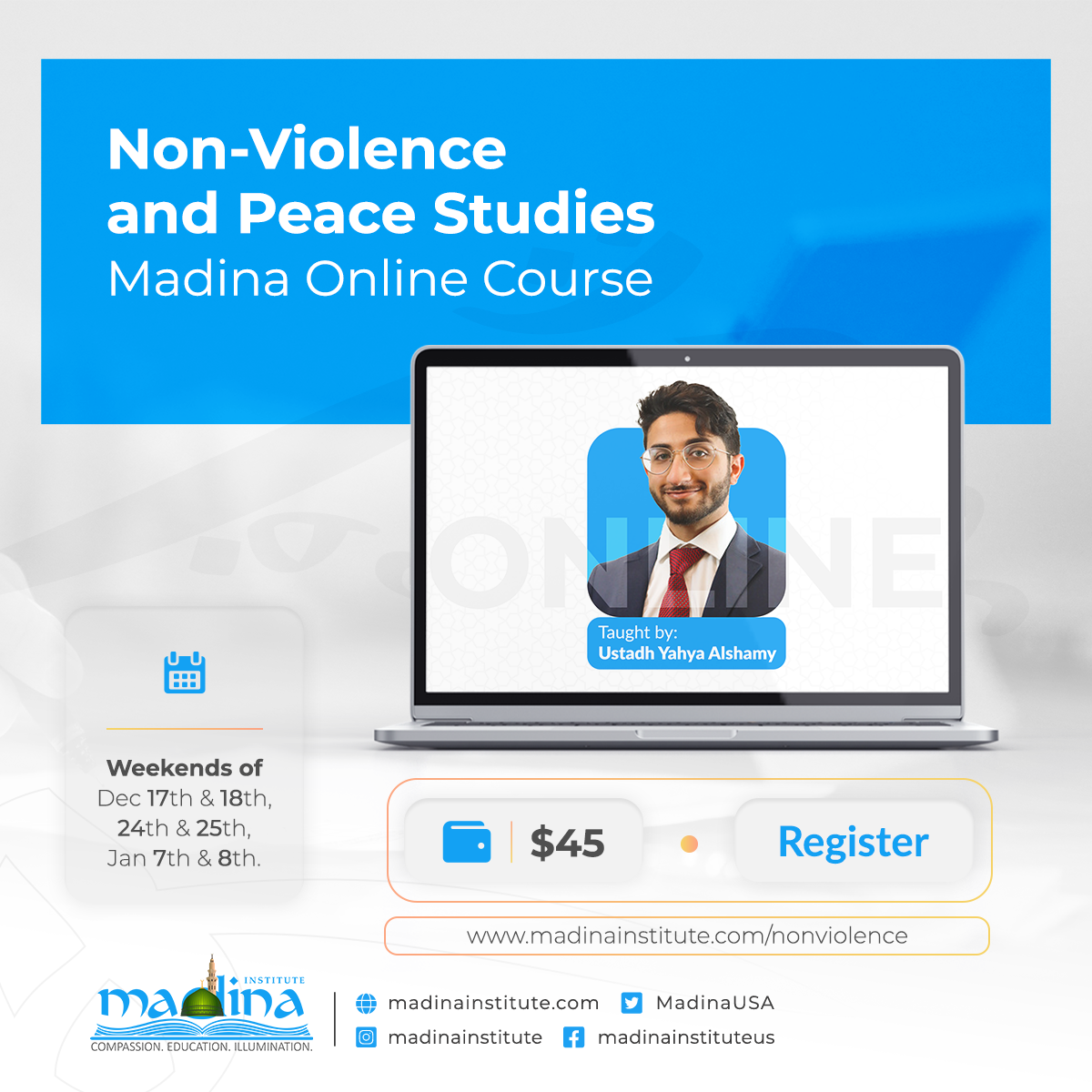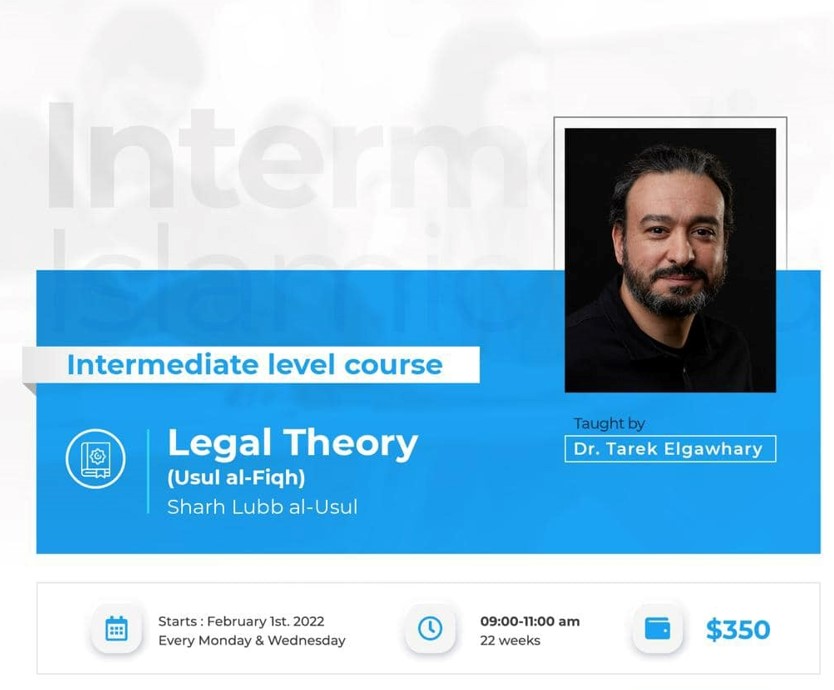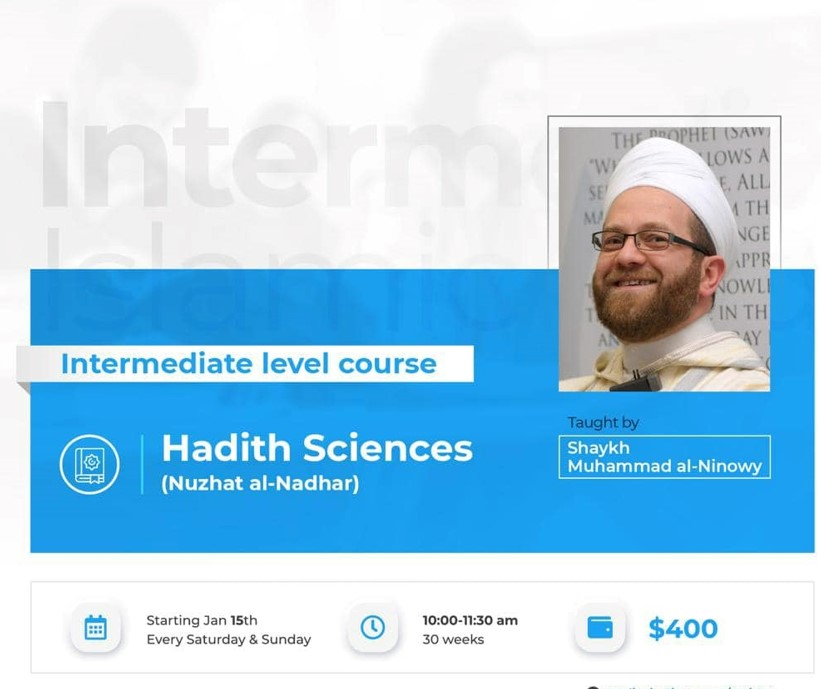
It’s Back!!! We are very excited to present our 3-weekend online course on Non-violence and Peace studies through an Islamic lens with Ustadh Yahya Alshamy. This groundbreaking course will cover non-violence & peace strategy from reliable academic sources within Islamic history. Classes are 3 weekends starting December 17th (Dec 17th & 18th, Dec 24th & 25th and Jan 7th & 8th) from 10am – 5pm EST. Recordings will be available for on-demand access!
SUBJECT OVERVIEW
This subject aims to provide a substantive understanding of nonviolence and peace studies’ foundations and applications from reliable academic sources. The course starts by understanding the sources of power in the hands of rulers in dictatorships and democracies alike and how the way we think of power defines how we react to violence. It later discusses the limits of violent and destructive strategies in achieving their stated ends, and how nonviolent strategies present themselves as better alternatives on both practical and moral measures. Moreover, the course will expose students to a set of Muslim nonviolent strategists starting from the Prophet Muhammad ﷺ’s methods of dealing with his opposition to Shaykh Amadou Bamba’s anti-colonial resistance in Senegal, and how they were all inspired by their faith in their struggle. It will also present the case for nonviolence as a fundamental ethical principle in Islam. The course will cover tens of different nonviolent strategies to persuade opposition or resist oppression, economically, socially, or politically. It will present an extensive history of the successful use of nonviolence across history through various methods and in different places around the world. Finally, it will compare, with the support of history and statistical studies, the short-term and long-term effectiveness of violence and nonviolence in solving conflicts. Finally, the course will provide a broad explanation of how and why nonviolence indeed works better than violence.
TOPICS COVERED
- – What are the full costs of war?
- – Can there be realistic alternatives to war and violence?
- – Can we compare the results of nonviolent struggles versus violent struggles?
- – Do Muslims have a history of nonviolent action against authoritarian rulers and occupiers?
- – How can peaceful methods enable people to defeat violent opposition?
LEARNING OUTCOMES
- – Become highly acquainted with the popular and academic literature on nonviolence and peace studies
- – Understand why war and violence are highly costly and inefficient methods of solving conflicts and moral dilemmas
- – Confidently explain what nonviolent action is and how it is different from pacifism
- – Obtain a strong background regarding the extensive use of nonviolent struggle across Muslim history
- – Recall a broad set of nonviolent strategies (e.g., boycotts, strikes, etc.) that have historically replaced violence successfully
COURSES TAUGHT
Weekend 1 (Dec 17 & 18) – Introduction to Nonviolence & peace studies
This course is an introduction to nonviolence and peace studies. Students will learn about the foundations of costs of war and its seen and unseen effects. They will study the history of war studies as a distinctive field and the rise of nonviolence and peace studies as a realistic alternative. Moreover, they will be exposed to analyses comparing nonviolent struggle to war (violent struggle) based on their short-term and long-term effects. The texts covered for this class will be Politics of Nonviolent Action – Part One and Defense, Peace, and War Economics.
Weekend 2 (Dec 24 & 25) – Islam & Nonviolence
This course is a survey of the vast scholarship on the intersection of Islam with nonviolence. Students will be exposed to a history of violence and nonviolence in Islamic thought. They will also learn the ideas and struggles of a set of Muslim thinkers, activists, and peacemakers who paved the way for significant socioeconomic changes. Moreover, they will study how nonviolence intersects with global transformation, social transformation, the role of women in Islam, and more. The texts covered for this class will be Islam and Nonviolence.
Weekend 3 (Jan 7 & 8) – Methods & Dynamics of Nonviolent Action
This course is an in-depth study of nonviolent methods and strategies and how they are useful in creating change without bloodshed. It will focus on exactly how and why nonviolence works. Students will learn about effective nonviolent methods like boycotts, peaceful protests, strikes, noncooperation, and mass civil disobedience and compare them to their violent counterparts. The methods will be discussed extensively with plenty of historical examples in different countries around the world. The texts covered for this class will be Politics of Nonviolent Action – Part Two & Three.





